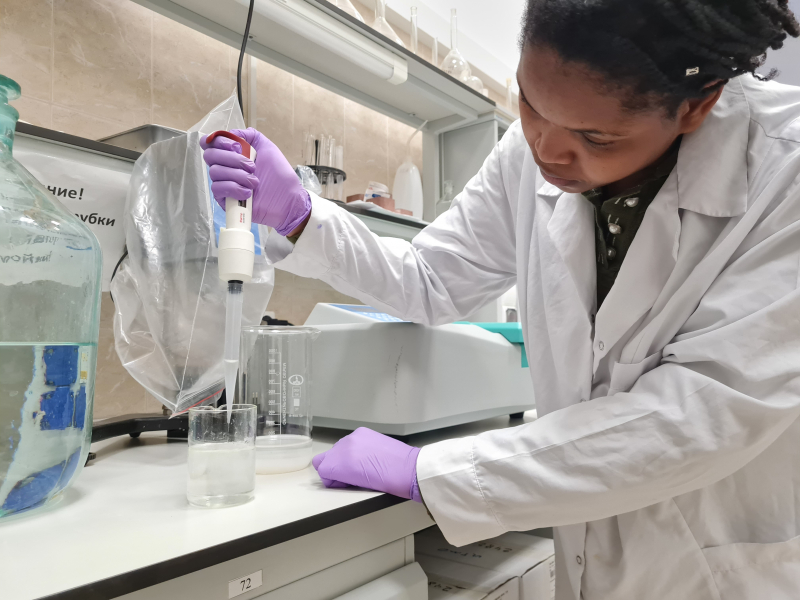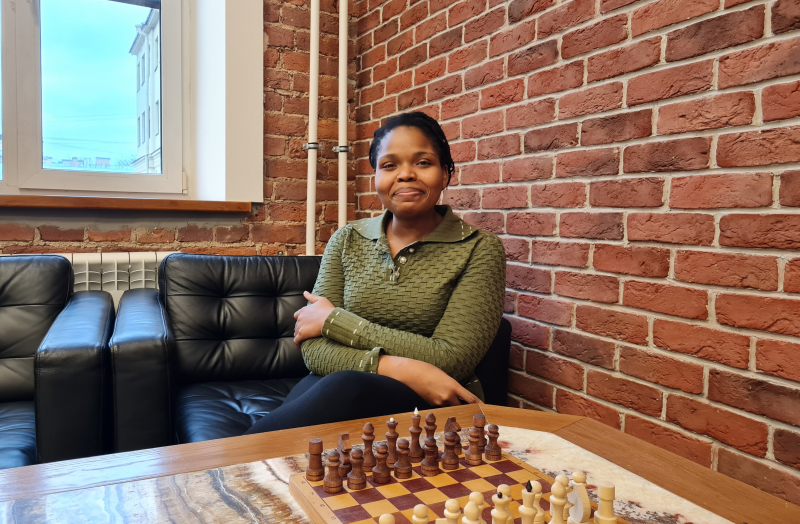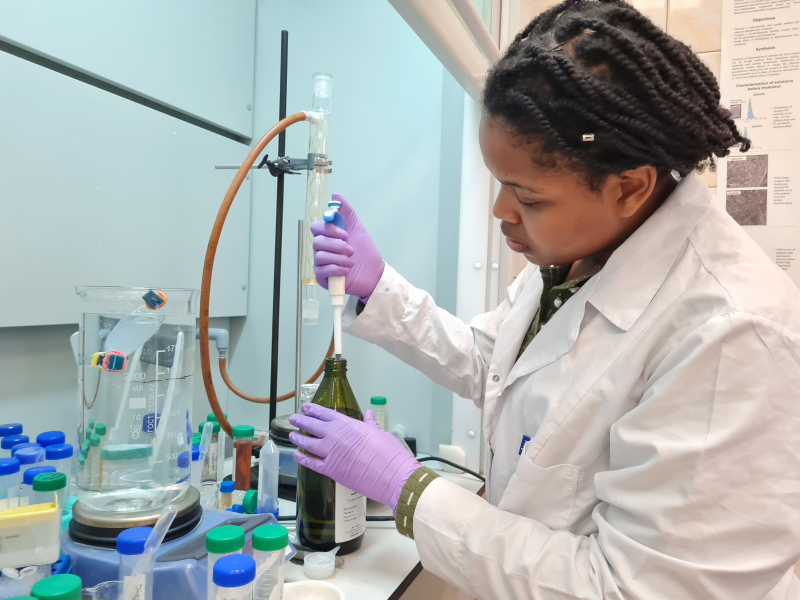Chantal Tracey came from Jamaica to study for a PhD at ChemBio Cluster, having previously received a Master’s from St. Petersburg Polytechnic University. I caught up with her to hear all about a day in the life of a PhD student and member of the 3D printing of functional nanomaterials group at the SCAMT institute (Solution Chemistry of Advanced Materials and Technologies).

Chantal in the lab. Photo courtesy of author.
When I worked at the Korea-Russia Science and Technology Cooperation Center (KORUSTEC), I had a chance to visit laboratories in Moscow, St. Petersburg, and Novosibirsk. Sometimes, I was shocked that some institutes don't have modern equipment for scientists. So I came to SCAMT Institute (Solution Chemistry of Advanced Materials and Technologies) — one of the most dynamically developing institutes in Russia — to see how young scientists could develop their ideas.
Russia means science
Chantal got into chemistry in high school. She decided that science is what she wants to do with her life. She completed a Bachelor's degree in chemistry and biochemistry at the University of the West Indies in Jamaica. After that, she came to Russia to study physics at Peter the Great St. Petersburg Polytechnic University. She said that when people hear about all the theorems and the rules, they remember Nobel laureates, but she thinks of Russia. To learn more about Russia and gain useful knowledge, she decided to study here.
After that, she wants to go back to Jamaica. But there is not a lot of work for scientists there.
"I had to teach, which you can do after your Bachelor’s. I didn't have many options because Jamaica isn't very science-centric. There is also an option to work at a lab for associate degree students, when you complete high school in Jamaica, you earn an associate degree. But when I finished my Master’s, I was overqualified to be a teacher and overqualified to be a lab tech. So I needed to do the next step."
She chose ITMO for her PhD for several reasons. First, one of her friends introduced her to study at ITMO. She visited SCAMT and found it to be a nice and well-equipped facility. Secondly, the people there were very nice and welcoming. The warm environment and aesthetics of SCAMT convinced her to apply for a PhD program.

Chantal at SCAMT. Photo courtesy of author.
At the same time, the department is very research-oriented.
"They don't waste time," Chantal tells us.
People in SCAMT always know what to do and when to do it. She likes a very structured environment. SCAMT also gave her the freedom to explore and discover on her own. The supervisors are always close and people are very helpful.
Theoretical and experimental work at the lab
Chantal studies smart materials: how to make them and to understand if they can work or not. Her PhD thesis focuses on polysaccharides. There has to be a theoretical understanding in order to find out what works. What's the simplest way to get it? What's the most convenient way? Will it work?
"Scientists are trying to be more environmentally conscious. So they're looking into making green smart materials. Polysaccharides come from plants and animal waste, and it's very easy to make them renewable. They’re abundant, environmentally friendly, and have very low impact, or no impact in some cases, on the environment".

Chantal in the lab. Photo courtesy of author.
Laboratories use hydrothermal treatment, which is the typical way to treat biomass. It uses very low temperature — the highest it goes is 140 degrees Celsius. And scientists hybridize these polysaccharides with inorganic nanoparticles that are optically, electrically, or magnetically active to give optical, electrical, or magnetic properties to the hybrid materials.
The theoretical work runs parallel to the experimental work. She doesn't need to stay in the laboratory for a long time because these reactions are long and they don't need to be watched. So she just puts it on, leaves it for several hours, and while that's happening, she does her research or her writing.
Chantal ended the interview with her expectations for the future students of SCAMT.
"If you want to pursue a degree in research chemistry, do it at SCAMT. They have the most knowledgeable advisors, access to the best equipment, and a healthy attitude towards research. They constantly push you to be better than you were".
Author Iryna Ponedelnik
(source https://news.itmo.ru/en/blog/224/?utm_source=vkontakte&utm_medium=article&utm_content=chantal_tracey)